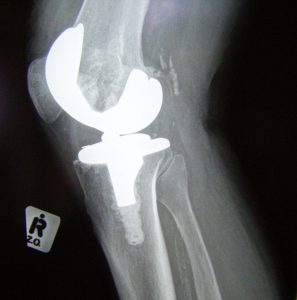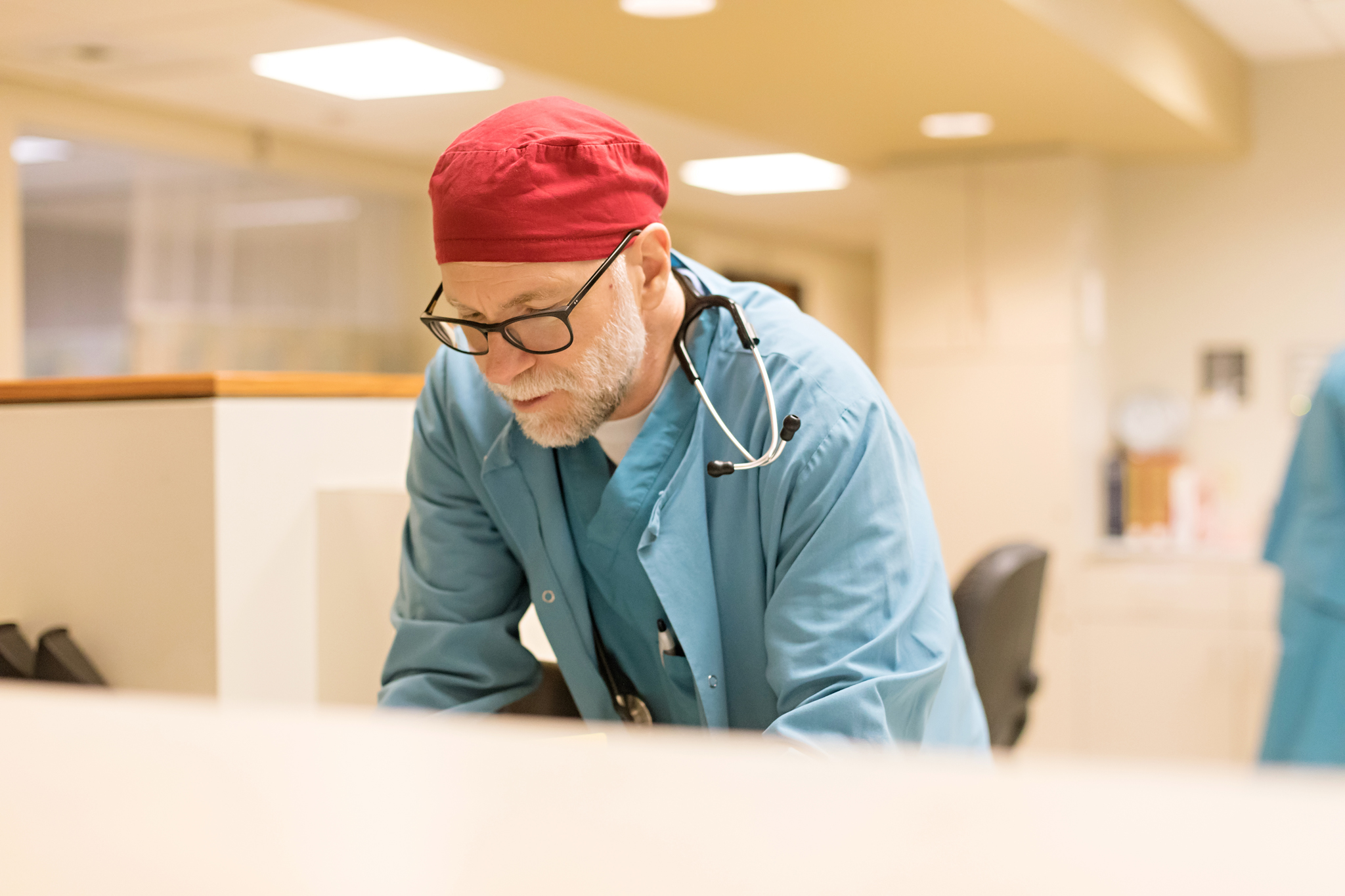When a machine runs smoothly, we almost forget it’s there. The same is true of our body’s often overworked joints. Whether through aging or sports injury, our knees take the brunt of physical movement and everyday wear-and-tear.
Five of the top seven sports injuries are leg-related and many arise from repetitive movement. Even if your activity is limited to walking—chasing a golf ball, window shopping, or wrangling the dog’s daily exercise—our knees can cause problems as we age.
 At Longview’s Pacific Surgical Center (PSC), orthopedists offer “advanced, minimally invasive treatment for most musculoskeletal (bone, muscle, joint, cartilage, ligament, etc.) disorders or injuries. Each doctor is highly trained and experienced and uses the latest surgical technologies across all orthopedic specialties.”
At Longview’s Pacific Surgical Center (PSC), orthopedists offer “advanced, minimally invasive treatment for most musculoskeletal (bone, muscle, joint, cartilage, ligament, etc.) disorders or injuries. Each doctor is highly trained and experienced and uses the latest surgical technologies across all orthopedic specialties.”
Furthermore “At PSC, we take great pride in providing a personal approach to your orthopedic care, from your admission to your discharge. Our nurses have extensive experience in the operating room and recovery room and are certified in both. Also, our staff excels in providing top-quality service and support in our clean, comfortable facility, which features a number of conveniences for you and your family.”
The commitment to transparency pricing means that even a procedure as intricate as total knee replacement is clearly priced and “includes facility fee as well as physician fees for the surgeon and anesthesiologist.”
At PSC, many pre- and post-operative services take place under one roof. This keeps costs low and cuts down on repeat visits. Currently, a total knee replacement at PSC costs $20,500, well below the 2017 national average of $49,500.
 The American Academy of Orthopaedic Surgeons (AAOS) explains that “If your knee is severely damaged by arthritis or injury, it may be hard for you to perform simple activities, such as walking or climbing stairs. You may even begin to feel pain while you are sitting or lying down. If nonsurgical treatments…are no longer helpful, you may want to consider total knee replacement surgery. Joint replacement surgery is a safe and effective procedure to relieve pain, correct leg deformity, and help you resume normal activities.”
The American Academy of Orthopaedic Surgeons (AAOS) explains that “If your knee is severely damaged by arthritis or injury, it may be hard for you to perform simple activities, such as walking or climbing stairs. You may even begin to feel pain while you are sitting or lying down. If nonsurgical treatments…are no longer helpful, you may want to consider total knee replacement surgery. Joint replacement surgery is a safe and effective procedure to relieve pain, correct leg deformity, and help you resume normal activities.”
Though it may sound complicated, “Knee replacement surgery was first performed in 1968. Since then, improvements in surgical materials and techniques have greatly increased its effectiveness. Total knee replacements are one of the most successful procedures in all of medicine. According to the Agency for Healthcare Research and Quality, more than 600,000 knee replacements are performed each year in the United States.”
The surgery, which can be done in Pacific Surgical Center’s outpatient clinic, can improve quality of life and help regain or maintain mobility. Experts at the Mayo Clinic describe the process; “The procedure involves cutting away damaged bone and cartilage from your thighbone, shinbone and kneecap and replacing it with an artificial joint (prosthesis) made of metal alloys, high-grade plastics and polymers. In determining whether a knee replacement is right for you, an orthopedic surgeon assesses your knee’s range of motion, stability, and strength. X-rays help determine the extent of damage.”
After your replacement, AAOS doctors recommend “Regular exercise to restore strength and mobility to your knee and a gradual return to everyday activities are important for your full recovery after knee replacement…Exercise is a critical component of home care, particularly during the first few weeks after surgery. You should be able to resume most normal activities of daily living within 3 to 6 weeks following surgery.” Your doctor or physical therapist will teach simple movements which help reintroduce and maintain your new joint’s flexibility and keep you on your feet.
There are a few post-surgical changes you may not expect, say the AAOS. Once your knee has healed, “Kneeling is sometimes uncomfortable, but it is not harmful [and] your new knee may activate metal detectors required for security in airports and some buildings. Tell the security agent about your knee replacement if the alarm is activated.”
And oddly, “Most people also feel or hear some clicking of the metal and plastic with knee bending or walking. This is normal. These differences often diminish with time and most patients find them to be tolerable when compared with the pain and limited function they experienced prior to surgery.”
Groucho Marx joked that “Getting older is no problem. You just have to live long enough.” But our knees—and other crucial joints—may disagree. Don’t live with pain and restricted mobility any longer than you have to. Call Pacific Surgical Center at 360-442-7900 or schedule an appointment online to begin down the road to recovery.



